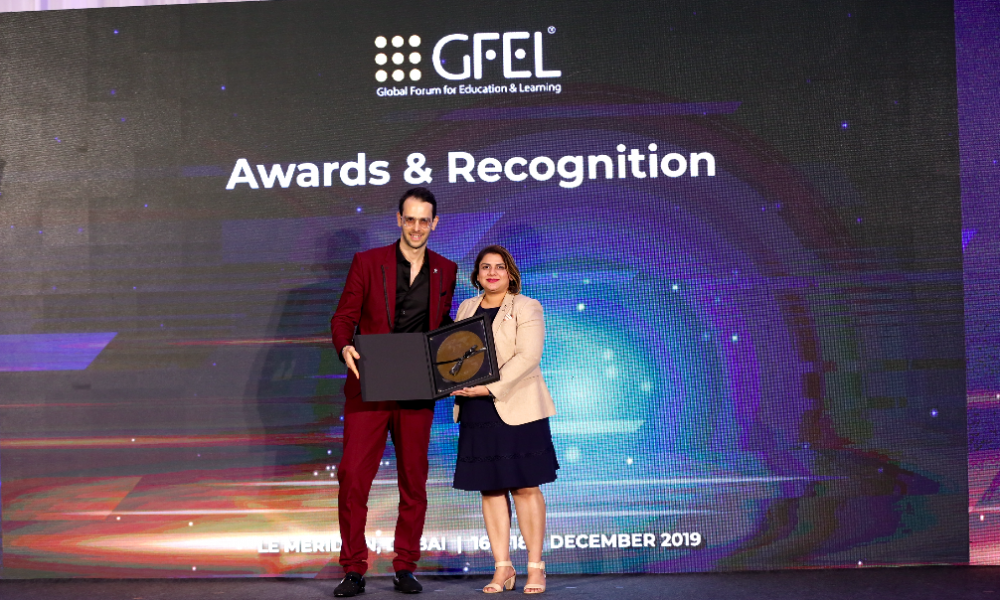The pandemic of 2020 has forced educational institutions to quickly adapt themselves to the new “normality” where students must study from home. Today we interview Fabio Gallerani, an innovator in the e-learning space awarded in 2019 as one of the top 100 educational leaders by the Global Forum for Education and Learning and founder of Marketing Genius, a successful e-learning platform that has impacted thousands of students since 2016.
Fabio, give us a little background on who you are and why you got involved in the e-learning space
After graduating as an engineer at the University of Bologna, I realized I wanted to become an entrepreneur and help others become the best version of themselves. In 2015 the e-learning space was almost unknown and the topic of digital marketing was taught by very few people worldwide.
After two intense years of studies in the digital space I founded with my business partner Matteo Pittaluga, who today is a well-known expert in the digital marketing space, an online academy called Marketing Genius.
Since then we helped thousands of people to acquire digital skills, improve their career and empower their businesses. I also got the chance in 2018 to work in the institutional world as a professor and I got to know the challenges universities were facing back then to provide online education for their students.
Fast forward in 2020, these challenges increased to a point that universities must address them immediately and digitalize their offer or they will face failure due to the “new reality” created by the covid-19 pandemic.
What are the steps a university should take right now to avoid losing all its students that might go somewhere else?
First of all, management and ownership must open up their mind. What worked in the past will not work in this new present and in the future. They must start asking themselves the question: “how can I create the best experience possible for my students in the online space?”
After implementing the technological infrastructure I would be focusing on the creation of a strong, decentralized, remote workforce to enhance the experience.
You see, it’s all about recreating the emotions and learning experience and making it better, creating an ecosystem that will empower students to study and graduate from home.
In a few words, focus on technology first but then focus on the customer experience people have while studying in the institution, make them happy and most of all, make them stay and fall in love with the energy this new digital environment provides.
You defined a methodology that has been awarded that focuses on the e-learning experience, can you tell us more about it?
In 2018, I was collaborating on a project called Digital Marketer with Marconi International University of Miami. The idea was creating a short, 6 months university course on digital marketing topics allowing students to learn in real time these fascinating and high demanded skills.
The IMPACT METHODOLOGY I used was focusing on the skills of professors that should be only people that are doing what they teach in the real world; then extremely practical teachings in all programs where theory is just the 20% of the total curriculum and everything is supported by an online ecosystem where students are motivated to take action.
The last important thing is to create case studies and work together as a team and all these things together will make a student transform into an expert.
This methodology was the one awarded in GFEL 2019 that allowed me to present it in front of 200 experts in Dubai and be included as one of the top 100 educational leaders thanks to the innovation in the e-learning space.
How important is it in 2020 to have digital access for your university available for students?
It is not important, it is vital. In my career I have witnessed an extreme competitive advantage for universities that knew how to successfully create an online ecosystem, allowing students to join the culture, complete the courses and graduate.
I cannot stress enough the importance right now for universities to digitalize their institution and follow the example of the ones that already did it successfully.
But, even if it seems an easy task like creating a website and giving students access to online videos on the platform, the process is much more than that.
This is why, if I was the owner of a university today, I will definitely get guidance from experts that did the process many times and have an effective methodology to implement in order to create a transformational e-learning experience for all students.
Thank you Fabio for sharing your experience today in this interview, we look forward to hearing more from you in the next one. We wish you all the best with your career as a teacher and all the best for your students as well.

